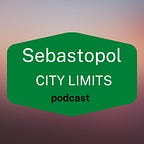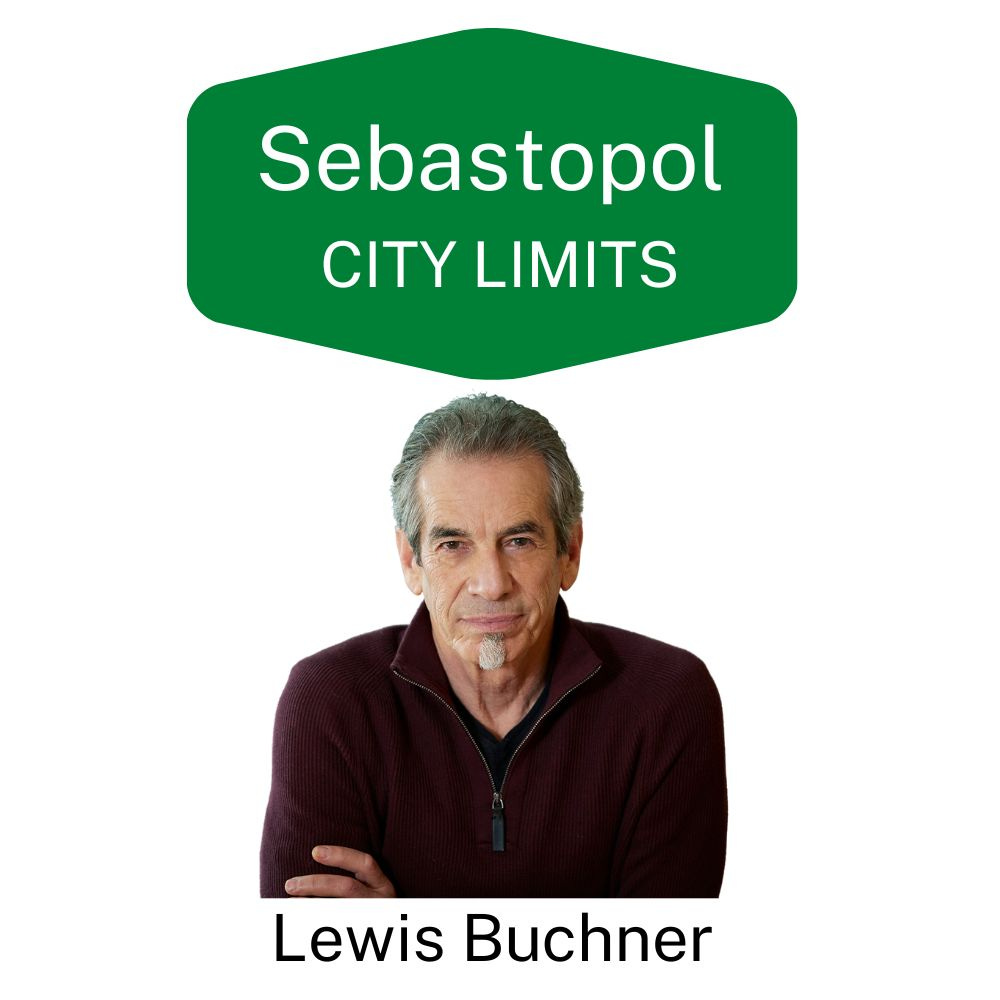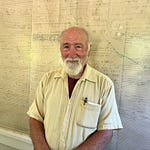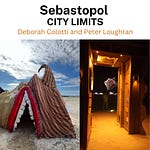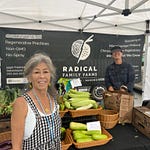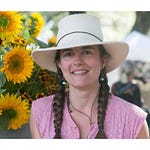Lewis Buchner is running in an uncontested race for trustee from the Fifth District of the West County Union High School District. The Fifth District represents the downtown area of Sebastopol.
Originally from New Jersey, Lewis has lived in San Francisco and the East Bay but moved to Sebastopol about eight years ago to live in the residence his parents had owned in Sebastopol. He is a woodworker and with his wife, Amy, run a small design-build shop called Myra Studio in town. He has a fourteen year old daughter who is an Analy freshman.
He wrote in his candidate statement that one of his priorities is diversity, equity and inclusion (DEI).
I want to bring to the Board increased leadership in training teachers, staff, andstudents about Diversity, Equity, and Inclusion. I believe that there are no bad people causing this problem; only a lack of knowledge and skills. Everyone suffers when these issues are not addressed; the kids who are being bullied, the kids who are bullying, and the school community as a whole.
The WSCUHSD board has three uncontested races: Shawn Chernila for Area 1; Jeanne Fernandez for Area 4 and Lewis Buchner for Area 5. Incumbent Patrick Nagle is running against Debbie Ramirez for the At-Large seat. The terms for the new board members will begin December 14.
Transcript
Lewis Buchner
Dale: Welcome to Sebastopol City Limits, and my guest today is Lewis Buchner, and Lewis is running in the fifth district for the West Sonoma County Union High School District. It's an uncontested race. Welcome Lewis. In some ways anyone willing to run for school board needs to be applauded. Thank you.
Lewis: You're welcome. Sometimes I wonder what I'm getting myself into.
Dale: Is this the first time you've run for an elected office?
Lewis: I've done a fair amount of board work and non-profit work, but this is the first time I've ever been in an elected office. Yes.
Dale: Let's start with just learning a little bit about you. Where'd you grow up?
Lewis: I grew up in New Jersey, right on the edge of rural and suburban New Jersey when there were still open forest and fields and places and creeks and places that kids could disappear for days at a time.
Dale: More central?
Lewis: North Central, yeah. Morris County.
Dale: Okay. Morris County is a beautiful old place, isn't it? Yeah.
Lewis: So I grew up there and then I moved to San Francisco to finish college and never left. And then, oh, maybe 15 years or more after that, my after my parents retired, they ended up moving to Sebastopol. I was living in San Francisco. They had colleagues and friends who had moved to Santa Rosa.
Dale: In the seventies or later in the eighties?
Lewis: They moved in the eighties. Yeah. And so we're now blessed with living in the house that was theirs and I've done a lot of work on it, but one of the best things about it was we inherited amazing neighbors. My parents were well loved by pretty much everybody on the street and so we just walked in. I mean, I knew them anyway because we were here visiting but actually living here was like this kind of instant neighborhood camaraderie, which I'm extremely grateful for.
Dale: That's wonderful. So when did you move up here full time.
Lewis: About eight years ago from San Francisco and the East Bay.
Dale: Now tell us a little bit about your, you have an interesting job, I think. And had you started that in San Francisco and other places and you've brought it up here.
Lewis: My dad was a furniture designer, a mid-century modern furniture designer, and he had a small furniture manufacturing business in New Jersey until he sold it and then taught furniture design for another 20 years.
So I grew up around shops and tools and machinery and when I was three years old, I could probably tell the difference from a router and a plainer noise coming through the walls. I studied filmmaking in college and whenever I couldn't get a job doing documentary camera work, I would go work in a cabinet shop because it's what I knew.
And I worked for about, almost about a year and a half for a wood pattern shop, which was making wood patterns for metal casting, which is very interesting, very precise. Everything's curved, everything's angled. So that was great training. And then I started my own little cabinet business in my twenties, and that grew from two people to four people to 12 people, to eventually a 60,000 square foot shop with 50 employees in South San Francisco, doing really high end architectural woodworking, so corporate lobbies. And we did a big job at San Francisco International Terminal and San Francisco Public Library. Many boardrooms and fancy wood interiors for wealthy corporations.
So I did that for quite a while, always with an interest in sustainability. Worked a lot around sourcing wood from sustainable sources, and I was involved in the beginnings of the FSC, the Forest Stewardship Council, which is a certification program for wood, that it comes from a good source that to this day is the most credible of those systems.
And now my wife Amy and I have a very small business. Amy's a fabulous interior designer. And I have a small shop with three employees and I'm having a ball. Going from 50 to three makes everything feels very easy. And I have a wonderful crew. And I'd say half the time Amy and I collaborate, and half the time she has design projects that we don't work on and we have woodworking projects that she doesn't design.
But right now we're doing a lovely restaurant in Petaluma that she designed it and we're doing all the woodwork. Called Luma. It's the old Dempsey space, right? On the river.
Dale: Working with Jasmine. Yeah.
Lewis: Wow. You know Jazz?
Dale: I do. She's a friend of my daughters. My daughter has the Bagel Mill in Petaluma.And they're good friends. They both have kids.
Lewis: Little tiny kids then. She's lovely and we love her. And she's also the next door neighbor of my daughter who lives in Petaluma.
Dale: And so you, you have an older daughter and
Lewis: And I have a 14 year old stepdaughter. Amy's biological child who's my stepdaughter, who lives with us, and she's at Analy. She's a freshman in Analy, which if you pull on that thread, that's why I'm here.
Dale: I wondered how that conversation might have gone between you and your daughter that you were gonna get involved in the school board.
Lewis: Oh, she thinks it's really cool because she knows why I'm doing it.
Dale: Good. Let's get to that. That's the interesting part here. Why do you leave your workshop and go sit in board meetings.
Lewis: Yeah. Really.
A couple things. I think the background piece of that is I've always felt like it was important to have some kind of nonprofit or something. Think globally, act locally. And so I've always felt it was important to have something that I did that was not just about me, my work, my family. Yeah. So whether that's been being on boards of some environmental organizations or trade associations, or US Green Building Council, which I'm on now. So I've always had that and I've been a little bit discouraged to be honest with you about climate change and environmental issues and feeling less like I can really make a big difference. Whereas 20 years ago, I felt like I really could change how wood was sourced. And it made me think, where can I really make a difference? Not 5% of our plastic is being recycled. It's things like that just feel daunting.
My daughter, my 14 year old who's biracial, had some really tough interactions in middle school where she was called the N-word and kids were just throwing around lots of racial slurs, not really understanding what they even meant, and the school really didn't know how to deal with it. And I have to say, these are teachers who I really like and have tremendous respect for, and administrators, principal and superintendent who are really good people, so this is not a matter of people being bad; it's a matter of people not having training.
And so I started thinking about what do we do? What do we do to try to make the school system better trained to help kids get along better and understand racial issues. And then, started learning more about Analy and the problems that Analy has had over 10 years now. Really probably long time before that, but 10 years ago there was a federal lawsuit and there were some big issues. And so I started reading up on that and realizing that a lot of those things had never been fully addressed. And so then if you say the kids need training, the teachers need training.
The teachers are hired by the principals; the principals are hired by the superintendent, and the superintendent reports to the board. If the board isn't setting a tone of a priority about certain things, it's just not gonna happen. And for better or for worse, I decided to throw my hat in the ring
Really the truth is that it's an uncontested elections, though I'm not even on the ballot.
Dale: Oh, you're not on the ballot?
Lewis: No, like it or not, I'm in. That's not my only issue that where I feel like I can lend a hand. I have a moderate amount of financial experience and, I've been treasurer of a number of organizations and, so I think I can maybe of some help looking at finances and just governance. I've run some businesses and I've been on a bunch of boards and I think good, fair, open-minded governance is a skill.
Dale: As is communication.
As is communication.
Lewis: Yeah. Yeah.
Dale: That's actually interesting, your way in on this. Both, it's real to you.
It's not just some choice of a subject. It's meaningful to you and your family.
Lewis: Diversity, equity, and inclusion training is really important, but I also. Feel that there's with all these kinds of things, it's very real and it's very important, but it also can go overboard.
So I don't want to be over woke. Yeah. I don't wanna be insensitive to the fact how different people think and live. And so I'm trying to help us find a really reasonable middle path to really address these issues. Get something done, but to realize that it's gonna take time, it's gonna be difficult, and people's patterns don't change easily. We don't wanna, we don't wanna swing the pendulum too far in either direction.
Dale: That's good. The budget has been a focus for a lot, maybe some improve improvements lately, but they can only do with what they revenue they have coming in.
Lewis: Yeah, for sure.
Dale: How many seats on the board change over through this election?
Lewis: Three.
Dale: Three, . I
Lewis: Ran uncontested Shawn Chernila ran uncontested, and then the at large seat Patrick Nagle versus Debbie Ramirez is contested. Okay. That's the one that's on the ballot.
Dale: So one contested race and two uncontested, and I think Shawn is from district one, is it?
Lewis: He's Guerneville guy.
Dale: Is there anything else that people should know about you or about this school board?
Lewis: Relevant to what we started talking about earlier about whether the El Molino campus can become a maker space and provide some of those functions. I would love to see a way of healing the rift between the communities. And I believe that it actually ties right back into the concept of diversity, equity, and inclusion.
In this case, it's not so much a skin color issue, but it's a class issue. I've heard El Molino people and even some old alumni talk about being called "River Rats," and that it just reminds me of slurs that my daughter's dealing with on the campus. So it's the same. Yeah. And and the fact that the name changed and then changed back and some of that, to me, I don't know the whole story and I will learn more and I will be open minded about it, but I think that there's some healing that needs to take place. We are one community.
The kids are doing a better job. The kids have done, from what I can tell, much better job of going, Hey, we're all in the same school together. This is cool. There's more kids we can flirt with, hang out with play sports with, do stuff with.
There's more class offerings. The kids are doing better at it, but we need to heal what's underneath with the older generations. So I think the more we can make use of that campus, I think there's a transportation issue that I really wanna learn more about. But part of it is, it's hard to get kids back and forth.
What if we had a couple electric buses that went that did a shuttle three times a day? You could take morning classes at the Analy campus and afternoon classes at the El Molino campus once a week. I don't know. I'm spitballing, but yeah, that's good. I think there's some ways, So that would address DEI..
It addresses the healing that needs to take place between the communities and it would address enrollment. We can do better with enrollment. We've pissed off a lot of people that don't want to send their kids to Analy and that can be corrected. And partly through healing some of the these wounds and partly through having a wider diversity of classes that we can offer kids. We can be a specialty school and a traditional academic school and attract kids to both, and we can have them work across that boundary.
I think a lot of this, I'm gonna have some certain rude awakenings about pie in the sky ideas, but I think there's some work that can be done to-- it's about healing really. And that will address revenue. We'll address funding, we'll address enrollment. A lot of the outcomes that we want have a root
Dale: in this another word is culture, right?
Lewis: Yes.
Dale: And of creating a civic culture, a learning culture, a respectful culture. It's not just about having an academic culture or a athletic culture. It's having these things that, that. People support each other and and our kids need that today more than ever.
Lewis: Yeah, absolutely.
Dale: Lewis, thank you for spending time talking to me and for hopefully other people get to know you a bit. That kind of healing that you're talking about is a difficult thing. Almost, I'd say reconciling budgets might be easier than that, but it's a worthy goal to come in and look at that. Cause I think it's a lot of also listening to people and people listening to each other. Sadly during Covid, because of the isolation of people and things like Zoom and everything else, we really need to get back to talking to real people in person. And understanding that we have a lot in common.
Lewis: People don't feel heard. Or, or seen.
Dale: Yeah. I wish you well and you won't be seen on the ballot but you'll be seen. When does your term then start? In January.
Lewis: January.
Dale: Okay. I wish you the best of luck.

